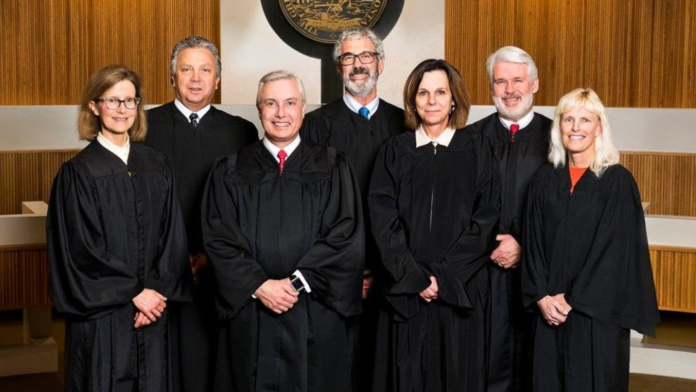(The Center Square) – A Montana think tank and special interest groups have filed an amicus brief in the state supreme court case known as Held v. Montana.
The coalition is asking the Montana Supreme Court to overrule a lower court’s decision that struck down recent changes to state environmental permitting laws and said 16 minors had standing to sue over Montana’s contribution to climate change.
“Upholding the Held v Montana decision could unleash excess litigation on nearly all economic activity in Montana, providing the ultimate veto authority to radical groups determined to stop our most critical projects,” said Kendall Cotton, President & CEO of Frontier Institute, the think tank behind the amicus brief. “The real question raised by this case is what role the courts should play in developing public policies to address global climate change.”
According to Cotton, “the answer is none.” He added that “these important public policy decisions” should be left to elected representatives in the legislative and executive branch.
Other groups involved in the amicus brief at the Montana Supreme Court include the Montana Coal Council, Montana Association of Oil, Gas, and Coal Counties, United Property Owners of Montana, and Montana Taxpayers Association.
“Our specific concern is that the decision may jeopardize new industries that will bring new tax revenue that would decrease the tax load on existing property taxpayers,” said Bob Story, executive director of the Montana Taxpayers Association.
Story said this involves mainly homeowners, but also other businesses whose property tax revenues are “in excess of the cost of providing them services.”
“Business and industrial properties also provide jobs which contribute to Montana’s income tax collections that fund a wide variety of services,” said Story.
In 2023, state District Court Judge Kathy Seely ruled that the policy Montana uses to evaluate requests for fossil fuel permits is unconstitutional. Agencies were not allowed to look at greenhouse gas emissions, something climate activists point to as driving climate change or global warming.
“Every additional ton of GHG (greenhouse gas) emissions exacerbates plaintiffs’ injuries and risks locking in irreversible climate injuries,” Seely wrote in an opinion reported on by Associated Press.
While it is a state court and not a federal court, it marked the first time a court in the United States did not side with the government in a case based on constitutional rights regarding climate change.
The brief underscores two points that Frontier Institute views as key:
- The issue of standing: We address the lack of causation and redressability based on the tenuous connection between the relief sought by the plaintiffs and the injury they claim. The plaintiffs’ injuries are conjectural because it depends on many intervening events and assumptions and does not consider the benefits of abundant, reliable, affordable energy.
- The Separation of Powers: Standing doctrine is especially salient in a case like Held v Montana which involves questions of public policy affecting the public at large and balancing incommensurate interests. It is the requirement of standing that enforces the separation of powers between the branches and ensures that this sort of inherently political question is left to the political branches.




